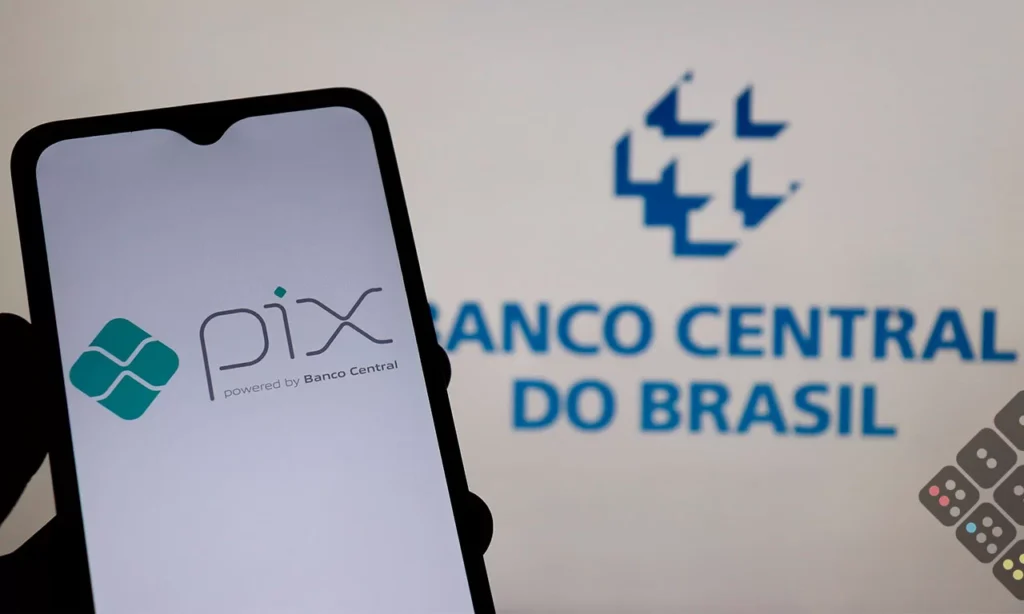Introduction: Navigating Brazilian Banking for Digital Nomads
Brazil, a vibrant and increasingly popular digital nomad destination, presents an exciting prospect for remote workers. However, navigating its banking system can be a common hurdle. For digital nomads, having a local bank account in Brazil is essential for managing daily expenses, receiving payments, and integrating into the Brazilian economy. This guide aims to demystify the process of opening a bank account in Brazil for digital nomad, addressing key concerns such as banking access for foreigners, the crucial role of the CPF (Cadastro de Pessoas Físicas), and the revolutionary impact of PIX.
We understand that setting up finances in a new country can be daunting, especially with documentation confusion and eligibility doubts. This article provides a step-by-step walkthrough, from obtaining your CPF to choosing between traditional and digital banking options like Nubank, and leveraging international transfer services such as Wise and Revolut. Our goal is to equip you with the knowledge to seamlessly manage your finances while enjoying your remote work adventure in Brazil.
We will also delve into PIX, Brazil’s instant payment system, explaining its functionality and how digital nomads can utilize it, even without a traditional Brazilian bank account. All financial figures will be presented in Brazilian Reais (R$), US Dollars (US$), and Euros (EU$), temperatures in Celsius and Fahrenheit, and distances in both metric (km, m) and imperial (miles, feet) units, ensuring clarity for our North American, Canadian, and and European audience.
Why a Brazilian Bank Account? Essential for Your Digital Nomad Journey
While relying solely on international credit cards might seem tempting, a local bank account in Brazil for digital nomad ffers numerous advantages. Firstly, it simplifies daily transactions. Many local businesses prefer or exclusively accept payments via PIX, directly linked to Brazilian bank account. Without a local account, you might face limited payment options, higher fees, or inconvenience..
Secondly, a Brazilian bank account can save you money on exchange rates and transaction fees.stantly converting foreign currency leads to losses. A local account allows direct receipt and spending of Brazilian Reais, often at more favorable rates. This is crucial for digital nomads earning in foreign currencies. Thirdly, it facilitates long-term living. Renting, utilities, or local services often require a Brazilian bank account for recurring payments. It also provides a legitimate financial footprint, beneficial for future visa renewals. Lastly, it offers financial independence and security. For any digital nomad planning an extended stay, a local bank account is indispensable.
Understanding the CPF: Your Key to Banking Access for Foreigners
The Cadastro de Pessoas Físicas (CPF), Brazil’s individual taxpayer registry identification number, is critical for digital nomads in Brazil, especially for financial matters. It’s Brazil’s equivalent of a US Social Security Number or UK National Insurance Number. While the Digital Nomad Visa (VITEM XIV) doesn’t require a CPF for initial application, obtaining one is almost a prerequisite for most daily activities, including opening a bank account in Brazil for digital nomad, getting a phone plan, renting property, and making online purchases.
Many foreigners find the CPF process confusing, but understanding its importance and straightforward steps can alleviate anxiety. The CPF is a unique, 11-digit number issued by the Receita Federal (Brazilian Federal Revenue). It serves as a universal identifier for individuals, facilitating various bureaucratic and financial transactions. Without a CPF, your access to essential services will be severely limited, making your digital nomad life challenging. Prioritizing CPF acquisition is fundamental for financial and administrative access in Brazil.
How to Obtain Your CPF: A Step-by-Step Guide
Obtaining a CPF is relatively simple and can often be done before or shortly after arriving in Brazil. This addresses documentation confusion. Here’s a general guide on how to apply for your CPF:
- Online Application (Pre-registration): Fill out an online pre-registration form on the Receita Federal website [1]. This prepares your information for the next step.
- In-Person Completion (or via Proxy): After pre-registration, complete the process in person at a designated agency: Banco do Brasil, Caixa Econômica Federal, Correios (Post Office), or Brazilian Consulates/Embassies abroad. You’ll need your passport and protocol number. A small fee (around R$ 7.00 or US$ 1.30 / €1.20) may apply. A proxy can complete it with a power of attorney.
- Required Documents: You will typically need your valid passport. Proof of address in Brazil is helpful but not always strictly required for initial application. Once complete, you’ll receive your CPF number immediately. While no physical card is issued, you can print proof from the Receita Federal website. This number is essential for nearly all financial transactions, making it your fundamental key to banking access for foreigners.
Traditional Banks vs. Digital Banks: Choosing Your Path
When considering opening a bank account in Brazil for digital nomad, you’ll encounter traditional and digital banks. Your choice depends on priorities, comfort with technology, and stay duration.
Traditional Brazilian Banks: Pros and Cons for Digital Nomads
Traditional banks (Banco do Brasil, Itaú, Bradesco, Santander) offer full banking services but can be bureaucratic for foreigners.
Pros: Physical branches and ATMs, full range of services, established reputation.
Cons: Bureaucracy and documentation (often requiring permanent visa/residency), time-consuming process, higher fees, potential language barrier. These challenges make them less practical for digital nomads.
Digital Banks: The Rise of Nubank and Others
Digital banks have revolutionized Brazilian finance, offering an alternative to traditional banking. They operate online, through mobile apps, with lower fees and simplified account opening. For digital nomads, banks like Nubank are popular due to accessibility.
Pros: Easy account opening (often just CPF and ID), lower fees (many free accounts), user-friendly apps, accessibility for remote management, seamless PIX integration. This directly addresses documentation confusion and unclear visa processes.
Cons: No physical branches (though solutions exist for cash deposits), potentially limited services initially. For many digital nomads, the benefits outweigh the drawbacks, making them the preferred choice for opening a bank account in Brazil for digital nomad.
Nubank: A Popular Choice for Digital Nomads in Brazil
Nubank is a leading digital bank, popular among digital nomads and foreigners. It’s one of the largest digital financial services platforms globally, serving over 100 million customers across Brazil, Mexico, and Colombia [5]. Its success stems from a customer-centric approach, transparent fees, and innovation.
Nubank offers a no-fee digital account (Conta PJ for businesses, Conta PJ for individuals) easily opened with a CPF. It provides a Mastercard debit card for purchases and ATM withdrawals (ATM fees may apply). The app is intuitive for managing money, paying bills, and making PIX transfers. Customer service is online and efficient. For a modern, hassle-free banking experience, Nubank is an excellent option for accessible banking access for foreigners.
The Power of PIX: Brazil’s Instant Payment System
PIX, launched by the Central Bank of Brazil in November 2020, is an instant payment system that has revolutionized financial transactions. It allows real-time money transfers 24/7, completing in seconds. This speed and availability have made PIX ubiquitous.
How PIX Works and Why It’s Essential for Digital Nomads
PIX operates through “Pix keys” (CPF, email, phone, or random code) linked to your bank account. You share your key, and the sender initiates an instant transfer. Payments can also be made by scanning a QR code. It’s free for individuals and low-fee for businesses.
For digital nomads, PIX is essential. It’s the primary payment method for almost everything, from groceries to rent. Many small businesses may not accept credit cards. Its instant nature is useful for time-sensitive transactions. With a Brazilian bank account (especially with a digital bank like Nubank), you’re seamlessly integrated into the local financial ecosystem. It directly addresses managing finances without CPF, as once you have a CPF and a Brazilian bank account, PIX is readily available.
Using PIX Without a Brazilian Bank Account: Wise and Revolut
While a Brazilian bank account with CPF is ideal, digital nomads can increasingly use PIX without one, primarily through international money transfer services like Wise and Revolut. These platforms have integrated PIX functionality.
Both Wise and Revolut allow sending money to Brazilian bank account via PIX. You can initiate a transfer from your Wise or Revolut balance (in your home currency or BRL) directly to a Brazilian PIX key. The recipient receives funds instantly. This is useful for paying individuals, small businesses, or rent without a local bank account. While you can’t receive PIX payments directly into Wise or Revolut, this enhances your payment capability within Brazil. This is a game-changer for shorter stays or while obtaining CPF/local account, providing a solution for managing finances without CPF for daily transactions. Compare rates before transferring.
International Money Transfer Services: Wise and Revolut
For digital nomads, managing international finances is crucial. Services like Wise and Revolut are indispensable, complementing or temporarily replacing a local bank account . They offer multi-currency accounts, competitive exchange rates, and low transfer fees.
Wise: Seamless Transfers and PIX Integration
Wise is popular for its transparent fees and real exchange rates. It allows holding balances in multiple currencies, including BRL, and offers a debit card. Benefits for digital nomads:
- Multi-Currency Account: Receive payments in various currencies and convert to BRL at mid-market rates with low fees. Crucial for foreign income.
- Low-Cost Transfers: Cheaper than traditional banks, typically around 1% [6].
- PIX Integration: Send BRL directly to any Brazilian PIX key, enabling instant payments even without a local account. Valuable for managing finances without CPF for immediate needs.
- Debit Card: Spend directly in BRL or convert from other currencies, avoiding foreign transaction fees. ATM withdrawals possible (ATM fees may apply).
Wise is an excellent solution for frequent transfers, multi-currency management, and leveraging PIX.
Revolut: Global Banking for Digital Nomads in Brazil
Revolut is another powerful financial super-app for international travelers and digital nomads. It offers multi-currency accounts, currency exchange, budgeting tools, and international transfers. Revolut has expanded in Brazil [7].
Revolut offers a BRL account with a debit card. Key features:
- Multi-Currency Accounts: Hold and exchange multiple currencies with competitive rates.
- International Transfers: Send money to/from Brazil with competitive fees. Local transfers to BRL via PIX [8].
- Budgeting and Analytics: Robust tools, spending analytics, and instant notifications.
- Security Features: Advanced security, including disposable virtual cards.
Compare Wise and Revolut based on your needs. Both provide excellent solutions for managing finances without CPF for daily transactions and international transfers.
Managing Finances Without a CPF: What Are Your Options?
While a CPF is highly recommended for extended stays, managing finances without one is possible for shorter visits or while awaiting your CPF. This section outlines options for managing finances without CPF.
- International Credit and Debit Cards: Use existing cards for purchases and ATM withdrawals. Be aware of foreign transaction fees (2-3%) and ATM fees. Exchange rates may be less favorable.
- International Money Transfer Services (Wise, Revolut, etc.): Invaluable. Load funds, use debit cards for BRL spending, or send money via PIX. Often the most cost-effective way to manage daily expenses without a local bank account or CPF.
- Prepaid Travel Cards: Load with BRL to manage budget. May have activation, loading, and ATM fees.
- Cash: Have some BRL cash for small purchases or street vendors. Exchange at reputable houses, avoid airport counters.
- Non-Resident Bank Accounts: Some Brazilian banks (e.g., Banco Rendimento) offer non-resident accounts (Conta CDE) for foreigners without CPF or permanent residency. These are primarily for international transfers and may have limitations [9].
These options provide temporary solutions. Obtaining a CPF and a local bank account will significantly simplify your financial life in Brazil long-term.
Step-by-Step Guide: How to Open a Bank Account in Brazil FOR Digital Nomad
This section provides a practical guide on how to apply for and successfully open a bank account in Brazil for digital nomad. While processes vary, these general steps will help.
Required Documents for Opening a Bank Account
Having these prepared in advance will speed up the process and avoid documentation confusion:
- CPF (Cadastro de Pessoas Físicas): Crucial. Obtain before attempting to open an account.
- Valid Passport: Primary identification.
- Proof of Address in Brazil: Utility bill (last 90 days) in your name, or rental contract/landlord letter with their utility bill. A declaration of residence may be accepted. This can be a challenge for short-term rentals.
- Proof of Income/Funds: Bank statements (home country), employment contracts, invoices. Digital Nomad Visa income requirement: US$ 1,500 (R$ 8,250 or €1,380) monthly or US$ 18,000 (R$ 99,000 or €16,560) bank balance [10].
- Digital Nomad Visa (VITEM XIV) or other valid visa: Essential for long-term residency.
The Application Process: Online vs. In-Person
The application process differs significantly:
Traditional Banks (e.g., Banco do Brasil, Itaú, Bradesco):
- In-Person Application: Almost always required, often multiple visits. Be prepared for bureaucracy and potential language barriers. Bring originals and copies.
- Interview: May be asked about purpose and source of funds.
- Waiting Period: Several days to weeks for activation.
Digital Banks (e.g., Nubank, Banco Inter, C6 Bank):
- Online Application: Entirely via mobile app. Convenient and can be done anywhere.
- Required Steps: Download app, fill details, upload document photos (CPF, passport, proof of address), selfie/video for verification. Brazilian phone number often required.
- Faster Approval: Often hours to days. Immediate use for PIX and online transactions; physical card mailed. Digital banks are a clear winner for convenience and speed, addressing consular delays and efficient banking access for foreigners.
Common Challenges and Solutions for Digital Nomads
Digital nomads may face challenges when opening a bank account in Brazil. Solutions can smooth financial integration.
- Lack of Permanent Address Proof: Frequent issue. Solutions: Landlord letter with their utility bill, declaration of residence (notarized), or long-term hotel/Airbnb confirmation (less common for traditional banks).
- Language Barrier: Portuguese may be needed. Solutions: Translation apps, basic Portuguese classes, local friend/translator assistance.
- Income Verification: Complex for diverse international income. Solutions: Clear, translated bank statements, employment contracts/invoices, brief explanation letter.
- Consular Delays: Unforeseen delays can occur. Solutions: Start CPF/bank research early, use international services (Wise, Revolut) for initial needs, consider non-resident accounts temporarily.
Anticipating these challenges and preparing solutions reduces stress and ensures a smoother process for opening a bank account.
Conclusion: Empowering Your Financial Journey in Brazil
Opening a bank account in Brazil for digital nomad is a pivotal step towards a seamless and financially efficient experience. While the process might seem complex with requirements and banking options, the rewards of local banking access for foreigners are immense. From PIX convenience to international transfer savings, a local account empowers full integration into the Brazilian economy.
We explored the CPF, digital banks like Nubank, and international transfer services like Wise and Revolut. Understanding these tools and following guidance helps overcome challenges and confidently manage finances. Brazil offers an incredible lifestyle for digital nomads. With financial setup in order, you’re well-positioned to embrace this vibrant nation. Your journey is about smart financial management enabling freedom and peace of mind. Embrace the process, leverage resources, and unlock your full Brazilian experience.
References
[1] Receita Federal. CPF – Cadastro de Pessoas Físicas. Retrieved from https://www.gov.br/pt-br/servicos/inscrever-se-no-cpf
[2] Oliveira Lawyers. (2025). Non-Resident Bank Account in Brazil. Retrieved from https://oliveiralawyers.com/services/cross-border/non-resident-bank-account-setup-brazil/
[3] Next Stop Brazil. (2025). How to register as a foreigner in Brazil, if you have a Digital Nomad Visa. Retrieved from https://www.nextstopbrazil.com/post/how-to-register-as-a-foreigner-in-brazil-if-you-have-a-digital-nomad-visa
[4] Monito. (2024). How to Open a Bank Account in Brazil for Foreigners. Retrieved from https://www.monito.com/en/wiki/how-to-open-a-bank-account-in-brazil
[5] Nubank. (n.d.). About Nu. Retrieved from https://international.nubank.com.br/about/
[6] Wise. (2024). Best banks for digital nomads: 2024 guide. Retrieved from https://wise.com/us/blog/best-bank-digital-nomads
[7] iupana. (2023). Revolut started operating in Brazil, its first go-live in LatAm. Retrieved from https://iupana.com/2023/05/05/revolut-started-operating-in-brazil-its-first-go-live-in-latam/?lang=en
[8] Revolut. (n.d.). How to transfer funds from Revolut. Retrieved from https://help.revolut.com/en-BR/help/transfers/outbound-transfers/how-to-send-money-to-another-bank/how-do-i-send-money-to-a-bank-account/
[9] Banco Rendimento. (n.d.). Checking Account in Brazil for non residents. Retrieved from https://www.rendimento.com.br/en/checking-account-in-brazil-for-non-residents-3/







Great write-up, I am normal visitor of one¦s website, maintain up the excellent operate, and It’s going to be a regular visitor for a lengthy time.